Is it finally time to dust off your supply chain manager resume or create a new one from scratch? Whatever the case may be, you've arrived at the right place! With our inspiring examples and real-life resume samples, you'll learn how to showcase your skills and experience in a way that impresses even the most demanding of recruiters!
So, dive into our comprehensive guide and discover the best tips and sleek templates that will make your writing process a breeze.
In this guide we tell you all about:
- Choosing the right resume format for your experience level
- Writing a supply chain management-themed resume summary
- Selecting key supply chain management skills for a resume
- Describing your work experience as a supply chain manager
- Listing the proper educational credentials correctly on your resume
- Elevating your supply chain manager resume with relevant extra sections
- Accessing valuable resources for job-seeking supply chain managers
1. Choose the right resume format for your supply chain manager resume
When applying to management-level positions, you'll almost always want to choose a resume format that prioritizes work experience.
The best format for this purpose is the reverse-chronological resume. With this format, the primary focus of the document is work experience, listing your most recent job first and working backward from that point onwards. Plus, this format is the standard expected by most employers.
However, there may be some scenarios where a work experience-focused resume may not be ideal. In this case, you may need one of the following alternatives:
- Functional Resumes: Functional resumes work well for applicants who have an extensive academic background but limited formal work experience. Rather than focusing on work experience, this resume emphasizes education, skills, and unpaid experience.
- Hybrid Resumes: Hybrid resumes are great for applicants who have transferrable skills and are changing career paths. Instead of making one section the focal point of the document, this format spreads out the focus of a resume evenly between all sections.
Choose your preferred template and make your resume shine.
2. Write an outstanding supply chain management-themed resume summary
A resume summary is a short statement at the beginning of a resume that helps introduce you to the employer you're reaching out to.
As such, your summary should include compelling details about your professional attributes that will help you become a memorable candidate that stands out from the competition.
To help illustrate how to write an effective summary, we've provided a weak example followed by a correction and explanation below:
Incorrect supply chain manager resume summary example
Supply Chain Manager who is experienced in working with aerospace technology and equipment. Skilled at developing more efficient supply chain strategies and optimizing delivery processes. Won previous company’s MVP award for multiple consecutive years.
Why is this Incorrect? When writing a resume summary, it's crucial to make the information you include as specific as possible. In this example, the applicant is far too vague, failing to even state how many years of experience they have.
Corrected supply chain manager resume summary
Talented Supply Chain Manager with 6+ years of specialized experience working with Aerospace Technology and Equipment. Achieved a 45% increase in delivery efficiencies by implementing a new supply chain strategy for previous employer. Three-time recipient of former company’s annual MVP Award (2018, 2019, 2020).
Why is this Correct? In this corrected example, the applicant is very specific about how many years of experience they have. Rather than simply stating they are skilled at developing supply chain strategies, they offer a detailed example of how they improved their previous employer’s delivery efficiency by implementing a new strategy. Overall, this summary is much more effective and compelling.
3. Select the best supply chain management skills for your resume
As a supply chain manager, you'll need as many interpersonal abilities as you will technical ones. To show employers you have a diverse skill set, you should include both hard and soft skills on your resume.
Hard skills are the technical abilities you gain through education and training, such as managing inventory or analyzing data. Soft skills, on the other hand, are your interpersonal abilities that govern how well you work with other people and understand your work environment. Unlike hard skills, soft skills can be both inherent and learned.
To help you brainstorm which supply chain management skills to include on your resume, we've included 10 examples of both hard and soft skills for this position below:
The best hard skills to put on your supply manager resume
- Data collection & analysis
- Managing & maintaining inventory
- Knowledge & evaluation of key performance indicators (kpis)
- Project management
- Record management systems
- Supply chain processes & strategies
- Developing business growth plans
- Knowledge of legal standards
- Contract & price negotiation
- Training & supervising supply chain staff
Effective supply chain management soft skills for your CV
- Exceptional communication
- Attention to detail
- Leadership
- Organization
- Time management
- Problem-solving
- Creativity
- Multi-tasking
- Forward-thinking
- Calm demeanor
4. Describe effectively your work experience as a supply chain manager
A well-written work experience section is essential when applying for a management position in the supply chain industry. While you want to provide an in-depth look into your experience and skills, you should also strive to keep this section concise and organized with bullet points.
As you describe your previous responsibilities and professional accomplishments, make sure to include as many specific and quantifiable details as possible.
Here is an example of a work experience entry from a supply chain manager resume
Auto Parts Global, Miami, FL
Supply Chain Manager
May 2016 to November 2020
- Decreased operational costs by 35% by implementing a new supply chain strategy, saving the company $60K annually.
- Trained and supervised a team of 10 supply chain analysts each year.
- Coordinated the delivery logistics for outbound products with both suppliers and clients.
5. List the proper educational credentials correctly on your resume
To become a supply chain manager, you'll generally need a minimum of a bachelor’s degree in a related field, such as Business Administration or Logistics.
However, to make your resume more competitive you should also consider earning certifications that are relevant to supply chain management as well. Additionally, adding in any relevant academic achievements – such as leadership positions or academic honors – is an excellent way to give your resume a greater competitive edge.
Here is an example of a well-crafted education section on a supply chain manager resume
Stanford University, Stanford, CA
B.A. in Business Logistics
- Graduated: 2018, Magna Cum Laude
Certifications
- APICS Certified Supply Chain Professional, Association for Supply Chain Management
6. Elevate your supply chain manager resume with relevant extra sections
In the dynamic world of supply chain management, where efficiency and optimization reign supreme, your resume needs to go beyond the ordinary to truly shine.
Elevating your supply chain manager resume with relevant extra sections can make all the difference in showcasing your expertise and securing coveted opportunities.
One such section is "Process optimization projects," where you can highlight your experience in streamlining operations, reducing costs, and enhancing overall supply chain performance.
Another valuable extra section to consider for your supply chain manager resume is "Volunteering activities". Demonstrating your commitment to giving back not only highlights your character but also showcases your ability to contribute positively to the community.
For example, you can mention your active participation in volunteering initiatives such as food drives, disaster relief efforts, or mentorship programs for aspiring supply chain professionals.
Here's an example of how to list extra sections in your resume
Process Optimization Projects
- Inventory Management Improvement Project, Company ABC, City, State, Year
- Led a cross-functional team in implementing process improvements to optimize inventory management, resulting in a 20% reduction in holding costs and improved order fulfillment efficiency.
- Supplier Performance Enhancement Initiative, Company XYZ, City, State, Year-Present
- Implemented a supplier scorecard system and conducted regular performance reviews to identify areas for improvement, resulting in enhanced supplier relationships, increased on-time delivery, and reduced supply chain disruptions.
Community Involvement and Philanthropy
- Volunteer, XYZ Food Bank, City, State, Year-Present
- Coordinated logistics for food collection and distribution, ensuring efficient supply chain operations to serve the community.
- Mentor, Supply Chain Professionals Mentorship Program, City, State, Year-Present
- Provided guidance and support to aspiring supply chain professionals, sharing industry knowledge and fostering career development.
Still looking for a job? These 100+ resources will tell you everything you need to get hired fast.
7. Top resources for job-seeking supply chain managers
Before you start putting together your supply chain manager resume, you'll need to find a job opportunity that speaks to you. Indeed, navigating your way through the vast sea of vacancies isn't exactly simple. But even this challenge can be made easier if you know where to look:
- Industry-specific job boards: Firstly, we recommend checking niche websites that cater specifically to your profession. In your case that would be websites like SupplyChainCareers.com and SCM Talent Group.
- General job search platforms: Or, you can go through job postings gathered by platforms like Indeed, Glassdoor, SimplyHired, or ZipRecruiter. It's true that, compared to the previous option, you'll need to do an extra step here by filtering your search results.
- Professional associations: If you're looking for a place that gives you access to job listings, networking events, industry insights, and training programmes, make sure you visit official websites of organizations like the Association for Supply Chain Management (ASCM) and the Council of Supply Chain Management Professionals (CSCMP).
- LinkedIn: There are several ways in which LinkedIn can help you with your job hunt. You can either polish your profile and hope to get noticed by recruiters; or you can cast your nets strategically and join groups like Supply Chain Management Professionals and make connections with fellow industry experts and potential employers.
- Continuous education: As a supply chain manager, you're sure to always find a room for improvement! Keep gaining new skills by enrolling in courses offered by online learning platforms like Coursera, edX, and Udemy.
- Industry conferences and seminars: Lastly, attending events like the ASCM CONNECT Annual Conference and the CSCMP EDGE Conference is an excellent way of learning about the latest industry trends and developments, as well as job opportunities.
Even though the process of job searching can sometimes feel like an uphill battle, you need to keep on going until you find exactly what you're looking for. Remember that every job application and every interview is a step in the right direction. Good luck!
Supply Chain Manager Resume FAQ
What are some common mistakes to avoid when writing a supply chain manager resume?
Some of the most common mistakes include: using a generic resume for all applications, NOT quantifying achievements, and having typos or grammatical errors. Also, make sure your resume is concise and focused, typically no longer than two pages.
I'm submitting my job application through the ATS. How do I use keywords in my resume?
First of all, you need to go through your job posting and identify words and phrases that describe any candidate requirements. Then, incorporate these keywords throughout your resume, particularly in the skills and work experience sections. Focus on terms related to required skills, qualifications, and responsibilities, such as "logistics," "procurement," "vendor management," and "demand planning." Using keywords is crucial if you want your resume to be ATS-friendly.
What are some strong action verbs to include on my supply chain manager resume?
Starting your bullet points with strong action verbs can make your resume more dynamic and engaging. As a supply chain manager, you can use verbs such as "optimized," "managed," "coordinated," "streamlined," "implemented," "analyzed," "negotiated," and "reduced." For example, you might say "Implemented new inventory management system" or "Negotiated with suppliers to achieve cost savings."
How do I effectively incorporate quantifiable data into my supply chain manager resume?
Include quantifiable data by mentioning specific metrics and achievements that highlight your impact and the value you've brought to your past employment. You can use numbers to showcase your accomplishments, such as "Reduced lead times by 25%," "Managed a $10 million annual budget," or "Increased on-time delivery rate by 15%." These details provide concrete evidence of your abilities and contributions.
How can I effectively demonstrate my problem-solving skills on my supply chain manager resume?
The best way to go about showcasing your problem-solving skills is by providing specific examples of challenges you faced and how you addressed them. Use the STAR method (Situation, Task, Action, Result) to structure your descriptions. For instance, "Identified bottlenecks in the supply chain process (Situation), developed a streamlined workflow (Task), implemented the new process (Action), and reduced production delays by 20% (Result)."

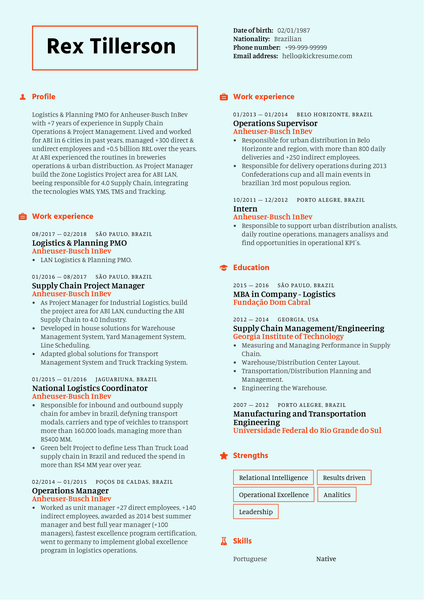
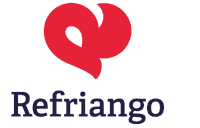

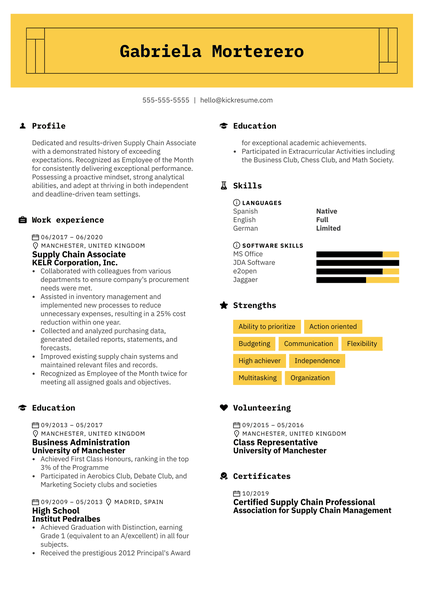
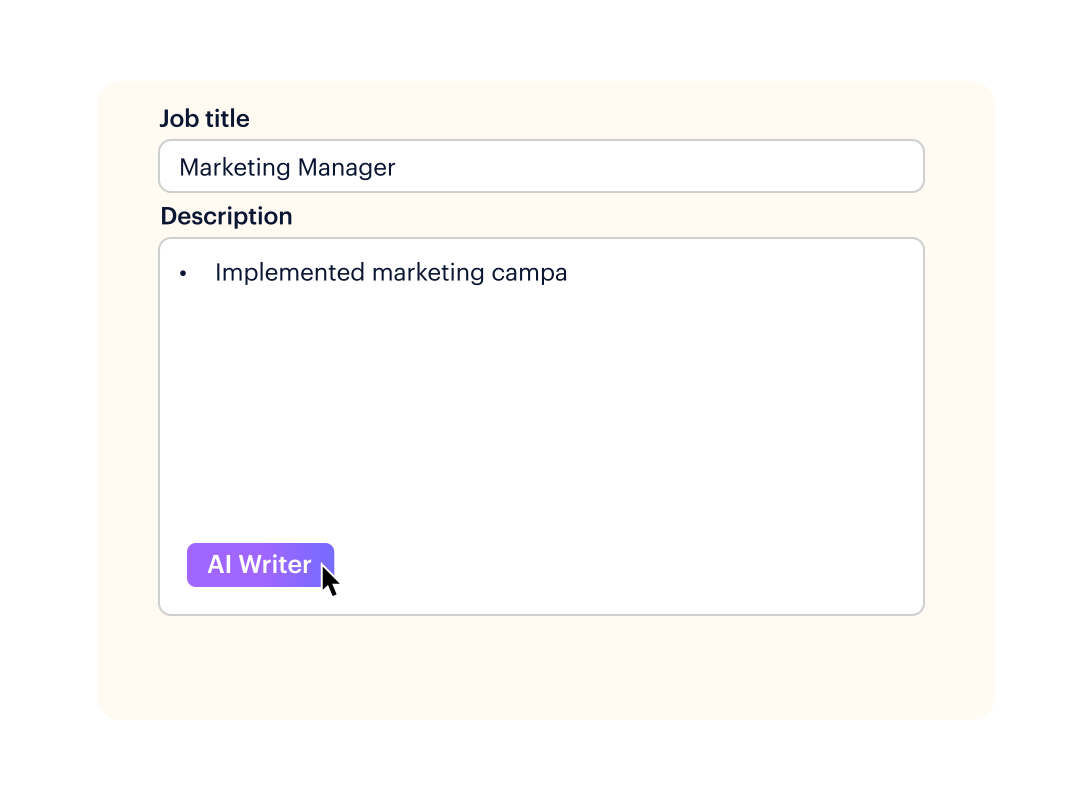


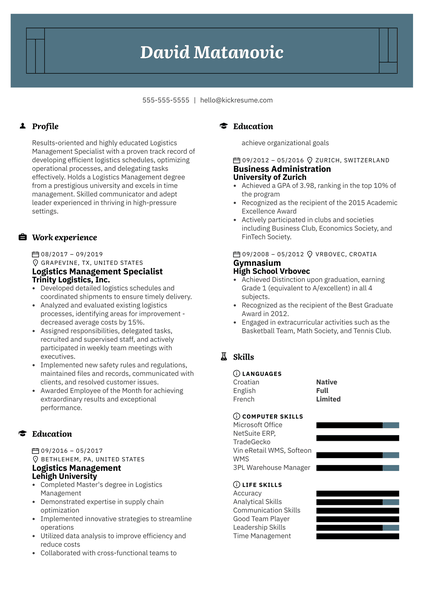

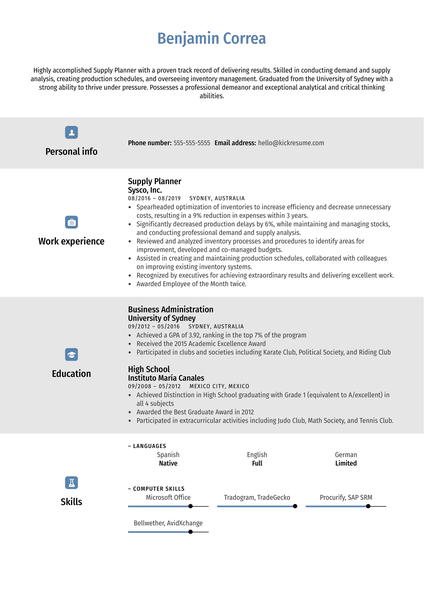
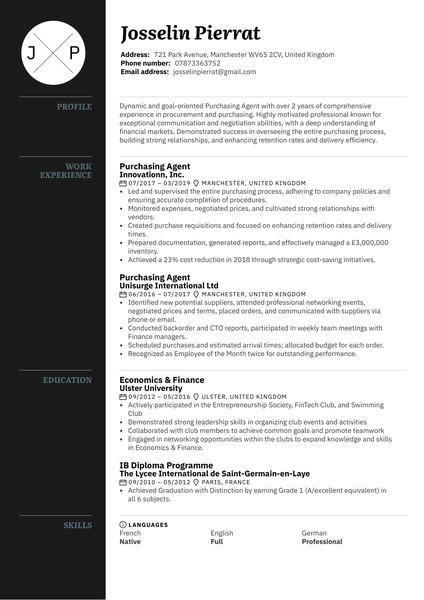

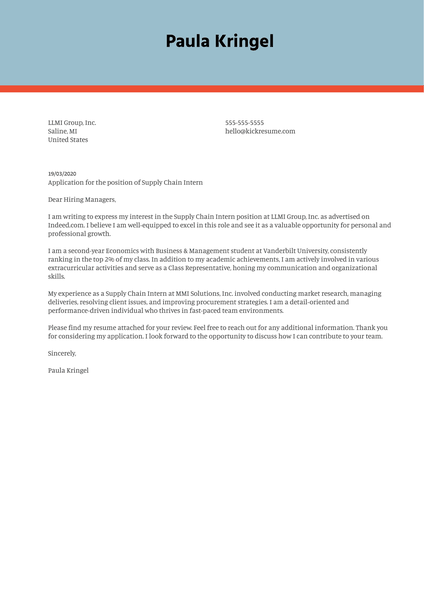
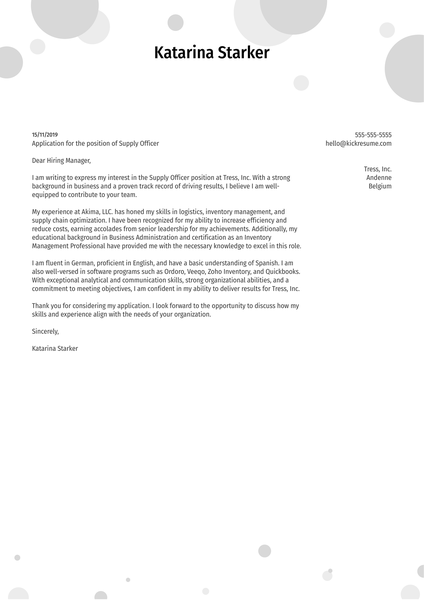
![How to Write a Professional Resume Summary? [+Examples]](https://d2xe0iugdha6pz.cloudfront.net/article-small-images/i-Profile.svg)
![How to Put Your Education on a Resume? [+Examples]](https://d2xe0iugdha6pz.cloudfront.net/article-small-images/i-Collage-Universities.svg)
![How to Describe Your Work Experience on a Resume? [+Examples]](https://d2xe0iugdha6pz.cloudfront.net/article-small-images/Experience.svg)


